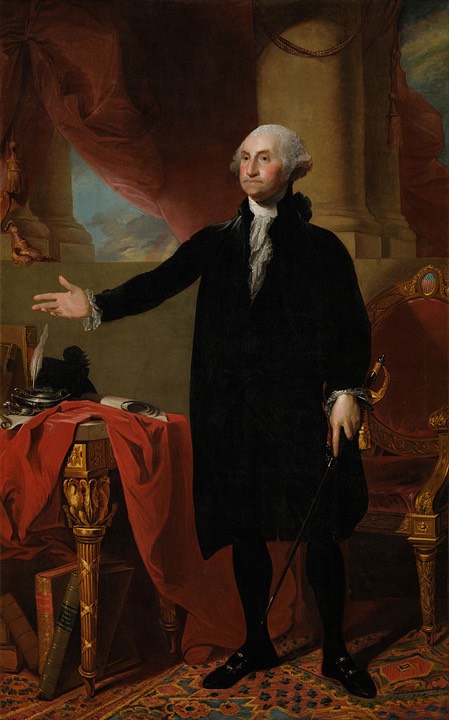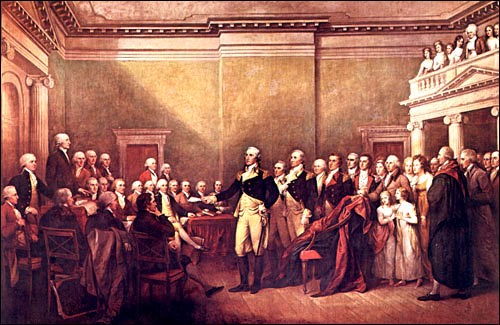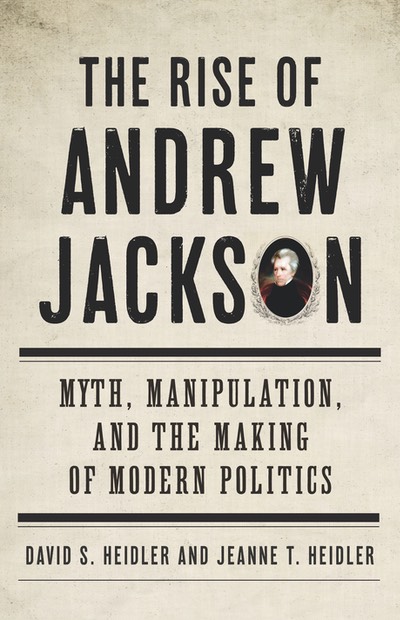When he retired from the presidency in 1797, George Washington’s first concern was correcting the disrepair of his house and farms. He spent months supervising artisans restoring neglected structures. He ordered furnishings and bric-a-brac from Philadelphia to refurbish the house and was delighted by the arrival of shipments like a kid at Christmas. In fact, everyone noticed how both he and Martha were having the time of their lives. Nelly Custis had never seen her grandfather so thoroughly happy. He had “already turned Farmer again,” she laughingly reported.
And so he had. People working the five farms of Mount Vernon’s 8,000-acre agricultural operation grew accustomed to the arrival of the tall rider wearing a black slouch hat, his saddle tricked out with an umbrella and a lunch pail, making sure “the wheels were in motion.”
Meanwhile, visitors flocked to see the Great Man and tour his estate. Strangers with letters of introduction or strangers with merely open hands and empty stomachs were never turned away. They couldn’t alter Washington’s routine, though. He rose early, wrote letters, ate a quick breakfast, and rode the circuit of his farms. He returned an hour before dinner. Everyone sat down for the meal at 3:00, sharp.
In his quiet and unassuming retirement he made people who had been suspicious about his intentions in the presidency look increasingly foolish. Critics could never afterward allege that he had secretly wanted to become a king. To the contrary, Washington’s presidency had been a great success, and his reputation was fated to grow in stature with every passing year. Some newspaper editors even carped about his limited abilities, but accusing Washington of incompetence was just as ineffective as charging him with malfeasance. Doing either made Americans angry.
Those Americans lived in a predatory world that relished the prospect that their republican experiment would fail. They trusted Washington to do what was necessary to prove the world wrong. They believed it was better for him to be right rather than smart. It mattered not at all that he was not brilliant, for the world was full of brilliant but bad people. Americans preferred wisdom born of experience. They felt comfortable with a man so certain of himself that he feared no other man’s greater intelligence. They admired a man whose moral compass always pointed the way to keeping his promises, and they revered a man whose heart counted no costs in doing so.
George Washington had left Mount Vernon in April 1789 fearful that his return to public life would imperil his reputation. He worried that the presidency was beyond his abilities, but it marked one of the few times in his life that he was wrong. His deliberate manner that exasperated quicker men was just right for the task he shouldered. He was a bit deaf and growing deafer, but that made him seem impervious to chattering arguments. He paused and hesitated when he spoke, but that made him seem thoughtful rather than hair-triggered. Saddled with ordinary flaws, Washington forged them into armor that protected him while burnishing his reputation.

George Washington at the end of his presidency.
He left office with storms clearly gathering on America’s horizon — the problem of remaining neutral while war raged in Europe was becoming unmanageable — but he left the country more prosperous, more stable, and just as free as he had found it. It would be strong enough to handle the crises to come. Americans credited Washington with these achievements, because few doubted his “purity of motive,” and they were confident that because of George Washington a bright future was coming to life for them “in the womb of time.”
George Washington in the summer of 1799 had never been happier. One visitor commented that “he now converses with more ease & less guardedly than when in public life.” Washington had even cast off his lifelong habit of hesitation when speaking. As summer turned to fall, and winter loomed, visitors filed through Mount Vernon as tourists on holiday. The Washingtons always treated everyone to board and sometimes a bed, whether stranger or acquaintance or friend.
And as always the fullness of his house or the inclemency of the weather didn't keep Washington from his daily schedule. Two hundred seventeen years ago this week, on the morning of December 12, he rode out to inspect the farms despite a lowering sky and a plunging thermometer. As he made his way, rain became snow, and it hailed. He was late returning to the mansion and would not delay dinner by changing into dry clothes. Three o’clock sharp was the rule. He would not break it.
Mount Vernon awoke the next morning to three inches of snow on the ground. It was very cold, and because he had a sore throat — a sign of a cold, he thought — Washington stayed in for most of the day. Around 4:00, he went out to tag some trees he wanted taken down. His throat still bothered him, but the family and his secretary Tobias Lear sat in the parlor that evening as usual with Washington reading to them from that day’s delivery of newspapers. Martha retired early, first looking in on her granddaughter Nelly and her new baby before padding off to bed. Washington and Lear chatted a while longer until Lear also went to bed, leaving Washington in his study writing in his diary, though not for long. He was in bed near 9:00, as usual.
All was as usual, in fact, as the comforting rhythms of the household thrummed along in the cold December hours. Yet in Mount Vernon’s stables, the horses impatiently hoofed at the straw in their stalls as the sun rose on December 14. The hostler did not bring saddles, and the tall rider did not appear. The morning wasted away as the familiar circuit of the five farms went unvisited. The horses could snort, flare nostrils, flick tails, and put back their ears, but he would not come. He was seriously ill.
The night before had gone from bad, as his every swallow became like flame, to worse, as his throat began to close. He woke Martha. It was past midnight, and he was having trouble breathing. He insisted that she not stir, and they were still abed when a maid came to build a fire just before dawn. Martha told her to bring Mr. Lear. After seeing Washington, Lear immediately sent a message to Washington’s friend and physician Dr. James Craik in Alexandria: come at once. Lear also sent for Dr. Gustavus Brown.
Washington insisted that his manservant Christopher Sheels dress him. Craik found Washington in the bedroom sitting in a chair. Washington already had pressed an overseer into service to bleed him. He suggested that Craik bleed him again. He was helped back to bed, and Craik performed the procedure. Thus began the medieval medical rituals that never cured and sometimes killed. Washington was bled at least four times during the day of December 14. Dr. Brown answered Lear’s call, and Craik sent for Dr. Elisha Cullen Dick as well.
This team did what they knew best, which was to open veins, administer purgatives, and ultimately heat tumblers to blister Washington's feet and legs, a procedure thought effective in drawing out toxins. They were fairly certain what was wrong with him, which they thought was quinsy, their name for a throat abscess on or near the tonsils. They were likely wrong, because Washington probably had epiglottitis, a severe infection of the flap that covers the windpipe when one swallows. The malady causes the epiglottis to swell and gradually cut off respiration. It qualifies as a surgical emergency that can test modern skills. Washington in the year 1799 could not survive what was wrong with him.
As the hours passed and his breathing became more labored, he asked to be helped to a sitting position, which eased his wheezing. After a time he became too weak to sit up. Despite his struggle for every breath, he tried to talk. In the afternoon he noticed Christopher Sheels still standing. He had been standing since dawn. Washington insisted that Sheels sit down.
He sent Martha for two documents in his desk, examined them, and directed that one be thrown in the fire. It was the older will superseded by the one he had written just that summer, the one that arranged for the liberation of his slaves. He rasped to Craik, “I die hard; but I'm not afraid to go.” As the afternoon grew dim at twilight, he bore up under the torture that passed for medical treatment, but he finally whispered to the physicians, “I feel myself going. I thank you for your attention. You had better not take any more trouble about me; but let me go off quietly; I cannot last long.”
They allowed him to rest. Craik sat by the fire while his colleagues conferred outside the room. About 10:00 PM, Washington motioned for Lear to lean close in. He had been thinking: being buried or entombed alive was a great fear before the invention of embalming. Washington whispered to his secretary, “I am just going. Have me decently buried, and do not let my body be put into the vault in less than two days after I am dead.”
Lear could not make his voice work. Washington rasped with urgency, “Do you understand me?” Lear finally could say that he did. Washington calmly whispered, “'Tis well.” They were his last words.
The room seemed calmer then with the lights low and the fire crackling. Dr. Craik returned to the chair by the fire. Martha sat silently at the foot of the bed. Lear held Washington’s hand. As the clock neared 11:00, Washington drew his hand away from Lear’s and felt for his own pulse. They all watched this strange gesture. His hand fell away from his wrist. His shallow breathing stopped. Lear sat frozen, but after a few minutes Craik reached over him to close Washington's eyes.
The country’s grief was convulsive and found voice in hundreds of eulogies that tried to recall the extraordinary achievements of an ordinary man, a Virginia farmer who had twice demonstrated a measure of greatness that people all over the world had found surprising, refreshing, inspiring. After defeating the British in the American Revolutionary War, General George Washington had resigned his commission, had handed over the army to Congress, and had gone home. Then, after serving as president, he had retired from office, had handed over the executive department to a successor, and had gone home.

The first of George Washington’s two greatest deeds occurred when he resigned his commission as commander-in-chief of the Continental Army in 1783. Just months before, that army had been willing to overthrow the government and make him king. The idea outraged him. He went home.
Those two deeds — especially the going home — were astonishing. As George Washington would not be a king, America would not have one; as he would not traffic on his celebrity, Americans would not have to suffer a sullied idol; as he followed his wish to go home, Americans would always have the example of a man who could have stayed but knew when to leave, a man who could have ruled but chose to retire, a man who handled power like a dangerous flame and thus managed to light the way without setting a fire, the difference between a statesman and an arsonist, the difference between George Washington and almost every other leader of every other revolutionary movement every other place in the world. Washington's life had always included the markers for duty, obligation, and service, but in the end his compass pointed home.
There on the Potomac River his happiness was grounded in the same hopes as those of every other American citizen. They wanted their country to be a place of plowed ground and thriving crops, of bustling towns and rivers crowded with commerce, of laughing children at play, of sinewed men at useful work, of tables brimming with food; the place with the aroma of abundance, the sound of peace, and tranquil twilights for stars to run their courses as the world spun toward an American dawn. George Washington saw that at the first and at the last, and most important he kept seeing it when others could not, always as the man waiting for the light, sure that its herald was the brightening sky over a people who governed themselves.
Because of the Virginia farmer, the American people would have the chance to govern themselves beyond the generation that won independence. They would have the chance for as long as there are sunrises and sunsets, for as long as stars run their courses and seasons pass from planting to harvest. With a farmer’s sense of time and timelessness, George Washington said as much at the end. It was a promise to his countrymen: “’Tis well.”
